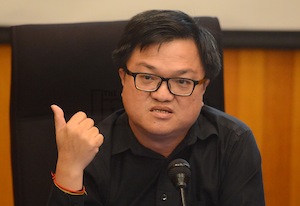Whose country was this? Whose is it now?

The advocates of a multicultural Malaysia should therefore be comfortable in believing both that “Malaysia belongs to all Malaysians today” and “Malaysia was the lands of Malays and the indigenous tribes”.
Wong Chin Huat, TMI
We cannot move forward as a country until we sort out who we were and who we are. These questions lead to an unsettled debate on the impartiality of state: should this country treat everyone the same?
Let’s first accept a fact: there is not a single version of history. Never, not in any country.
Granted, official history – that appears in official documents and is taught in primary and secondary school classrooms – cannot afford to have many versions. The single version therefore should be as far as possible inclusive to do justice to all parties.
Why Malaysia is not Malacca’s successor
In the state’s official narratives, Malaysia is simply a successor state of the Malaccan sultanate.
I consider that a distortion because the Malaccan sultanate never extended its power across the South China Sea, even at its height.
The north coast of Borneo Island – namely, what we today call Sarawak, Brunei and Sabah – was nominally the territories of the Brunei sultanate, with the Sulu sultanate later making some claims on east coast of Sabah.
To me, the official history is a distortion because it hides the fact that today’s West Malaysia and East Malaysia were never ruled by the same power before the British.
Malaysia is largely and was intended to be the successor state of British Southeast Asia – officially known as British Malaya (including Singapore) and British Borneo.
Our modern boundaries are largely the result of the British, the Dutch and the Siamese self-dividing their imperial realms.
I can understand why and how my more inclusive narrative of Malaysian history is inconvenient and troublesome for many parties with vested interests because it leads to at least two implications.
First, in designing and debating the nation’s future, we cannot just look at certain periods of ancient history and overlook the more immediate periods that shaped us into what we are today, especially for Sarawak and Sabah. They became a political entity only during and because of the rule of the Brooke dynasty and the British North Borneo Company.
Second, our anti-colonial discourse was not as straightforward as per the official narrative. Our founding fathers were both collaborators and opponents to the British. They were not anti-colonial throughout.
Who owns the state?
A Muslim Dusun reader from Sabah reacted angrily towards my interpretation of history. He saw it as a deliberate attempt to erase the Malayness of Malaysia and to deny historical continuity.
This is completely untrue. I always see Nusantara (for me, maritime Southeast Asia which stretches from Aceh in northwest to Luzon in northeast and Timor in southeast) as a civilisational zone, on which post-colonial states were built.
I recognise that migration within the region before the emergence of nation-states was very common. I also recognise that Malay has been the lingua franca in the region for millennia.
I want to take my Dusun friend’s concern to a larger and more normative question in the context of nation-building and multiculturalism: how impartial should a state – in this case, Malaysia – be?
In simple terms, should the state treat everyone the same? This comes back to a more fundamental question: who owns the state?
A universalist view would see the state as a common possession of all citizens, therefore the state should treat everyone equally. This is now the global norm, at least for countries that call themselves democracies.
However, if some segment of population can be unreasonably denied citizenship – in the extreme form, they could be treated as slaves, which was the norm in many countries till two centuries ago – then equal treatment for citizens becomes hollow.
Hence, equality and inclusion would demand that citizenship be extended maximally to all residents who are willing to pledge their loyalty to the state.
Can new citizens shape the nation-state’s identity?
But as immigration becomes more prevalent, this poses a threat to the existing citizens of a state: will they be overwhelmed by newcomers?
Malaysians are so familiar with ethno-centrist calls of “Balik Tongsan” or “Balik India” that some may think this is exclusively our problem. It is not.
The fear of immigrants is in human nature. From neighbouring Singapore to Hong Kong, to Europe, America and Australia, immigrants are faced with hostility and discrimination.
To begin with, immigration is a very powerful self-selection process to produce the fittest survivors – the meek would not start their journey or might not make it.
Immigrants are therefore often hardworking, tough and determined to achieve a better life. Their competitiveness and aggression then often force the less competitive ones among the existing population out of jobs or businesses or university enrolments, even though the economy as a whole may become wealthier because of the immigrants. This is the interest-based resentment.
But immigrants are also different culturally, linguistically and religiously. They change the social fabric and cultural landscape of the nation-state, making it different and strange. This is the identity-based resentment.
Combining the interest and identity aspects, you can then have at least four basic positions on immigrants: first, reject them (no citizenship); second, accept them but force them to be assimilated (assimilationist equal citizenship); third, accept but constrain them if they refuse to be assimilated (assimilation-driven differentiated citizenship) ; fourth, accept them and celebrate diversity (multiculturalist equal citizenship).
In Malaysia, the debate is all the while dominated by the third and fourth positions, with the first position now increasingly voiced out by the Malay-Muslim ultra-nationalists.
Read more at: http://www.themalaysianinsider.com/opinion/wong-chin-huat/article/whose-country-was-this-whose-is-it-now

